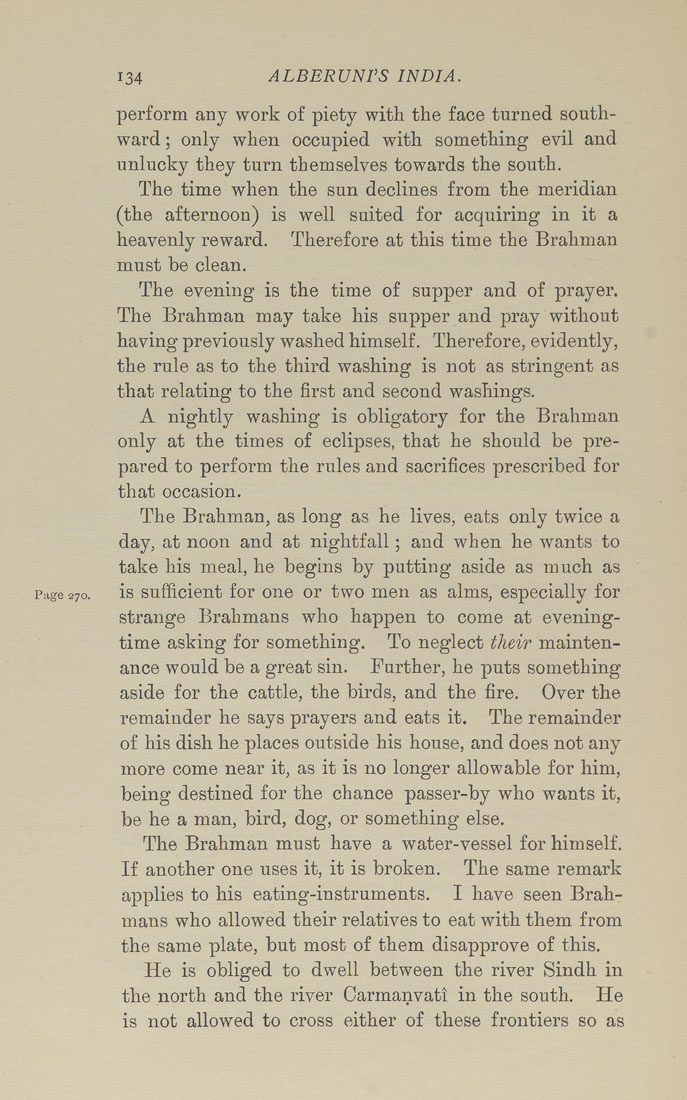134 ALBERUNTS INDIA.
perform any work of piety with the face turned south¬
ward ; only when occupied with something evil and
unlucky they turn themselves towards the south.
The time when the sun declines from the meridian
(the afternoon) is well suited for acquiring in it a
heavenly reward. Therefore at this time the Brahman
must be clean.
The evening is the time of supper and of prayer.
The Brahman may take his supper and pray without
having previously washed himself. Therefore, evidently,
the rule as to the third washing is not as stringent as
that relating to the first and second washings.
A nightly washing is obligatory for the Brahman
only at the times of eclipses, that he should be pre¬
pared to perform the rules and sacrifices prescribed for
that occasion.
The Brahman, as long as he lives, eats only twice a
day, at noon and at nightfall; and when he wants to
take his meal, he begins by putting aside as much as
Page 270. is sufficient for one or two men as alms, especially for
strange Brahmans who happen to come at evening-
time asking for something. To neglect their mainten¬
ance would be a great sin. Further, he puts something
aside for the cattle, the birds, and the fire. Over the
remainder he says prayers and eats it. The remainder
of his dish he places outside his house, and does not any
more come near it, as it is no longer allowable for him,
being destined for the chance passer-by who wants it,
be he a man, bird, dog, or something else.
The Brahman must have a water-vessel for himself.
If another one uses it, it is broken. The same remark
applies to his eating-instruments. I have seen Brah¬
mans who allowed their relatives to eat with them from
the same plate, but most of them disapprove of this.
He is obliged to dwell between the river Sindh in
the north and the river Carmanvati in the south. He
is not allowed to cross either of these frontiers so as
|








